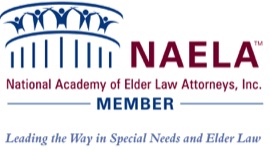Philip M Hawes
Attorney & Counselor
Legal services for our aging population . . . .
Back to Practice Areas [CLICK]
Protection for Persons Over Age 65
We know that persons who are disabled or have arrived into the class of "senior citizens" have become reliant upon others to help in their daily lives. Your trusted person probably is a close relative, such as a son or daughter, upon whom you call for support or assistance. If you have prepared your estate plan, you have named individuals to take control of your personal and financial life in a more formal manner when you are no longer able to act for yourself. These are the trustee of your trust or your agent under a power of attorney or advance health care directive. The persons who accept this responsibility assume certain ethical and legal obligations to you to act in your own best interests and not their own, to conduct your affairs and make decisions for you competently, to manage your financial life without self-interest, and so forth.
Elder Abuse is not a new phenomenon, but it has only recently become recognized in the law as something worthy of legislative protection. This problem takes on importance now because the size of the elder population (the “victim pool”) is becoming exponentially large as the “baby boom” generation reaches older age.
It is all too easy to carry out because no one else is watching in most cases and the victims often cannot recognize the abuse or protect themselves from it. This is a tragedy of increasing proportions. The victims are both elderly and disabled individuals.
It occurs when that trusted relationship ceases to function. This happens overtly when someone is trying to take advantage of you by physical harm or neglect, by stealing, etc. In many cases, it begins subtly when an agent, employee or caregiver keeps the change from a shopping errand or a son or daughter pays one of their personal obligations from your checkbook. In virtually all cases, once it starts it escalates inevitably and you suffer increasingly as a result.
Protect Yourself: It is important to you and your family to be vigilant so that any hint of abuse is discovered as early as possible when the amount of harm is less severe as it will become if continued. Often the abuser tries to isolate you from family and friends so the abuse is not apparent. This is particularly true in the case of financial abuse. However, your family and friends are your best allies and most able to intervene on your behalf.
If you can counteract such isolation by having family or friends visit you regularly so that you have persons with your best interests at heart to be in a position to detect or witness any physical abuse or neglect. Financial abuse is more difficult to safeguard against unless you can successfully insist that your financial agent or trustee must allow a third party to "audit" your financial records frequently.
These are a few of the strategies you can employ to protect yourself and your resources during this period of vulnerability. More of ten, however, the abuse goes unnoticed because there is no neutral third party available to check on things.
What Can You Do?
If you are in immediate danger, CONTACT 911
Otherwise, you may call Adult Protective Services, which is available through the Department of Health Services in every California County. Access APS online at http://www.cdss.ca.gov/Adult-Protective-Services
If you live in Santa Barbara County, you may call the 24 Hour Abuse Hotline - (844) 751-6729 - or call the local Hotline
Santa Barbara Office:
Department of Social Services
234 Camino Del Remedio
Santa Barbara, CA 93110
Santa Maria Office:
Department of Social Services
2125 S. Centerpointe Parkway
Santa Maria, CA 93455
Santa Barbara Hotline
(805) 681-4550
Santa Maria Hotline
(805) 346-8303
Lompoc Hotline
(805) 737-6020
Additional Resources
Santa Barbara County District Attorney/Dependent Adult Abuse Unit
Santa Barbara Contact: (805) 568-2300
1112 Santa Barbara Street, Santa Barbara, CA 93101
Santa Maria Contact: (805) 346-7540
312-D East Cook Street, Santa Maria, CA 93454
California Association for Nursing Home Reform (CANHR) at www.canhr.org/factsheets/abuse_fs/html/
This organization has a wealth of information on a variety of elder law topics.
California agencies that assist in areas, such as physical abuse, nursing home abuse, financial abuse, etc.
California Department of Social Services
Phone: 916-651-8848
California Long Term Care Ombudsmen Program
Phone: 800-231-4024
California Courts - Elder and Dependent Adult Abuse
California Attorney General’s Medi-Cal Fraud and Elder Abuse Bureau
Phone: 916-210-6276
I belong to a national volunteer association of lawyers whose practice involves some elder law issues. The field is too large for any individual to coverall aspects of this area of law. So, you should ask your prospective lawyer about the elder law topics she/he practices and whether they fit with the needs of your project. You will find more information and referrals who practice some form of elder law on the National Academy of Elder Law Attorneys (NAELA) website.
